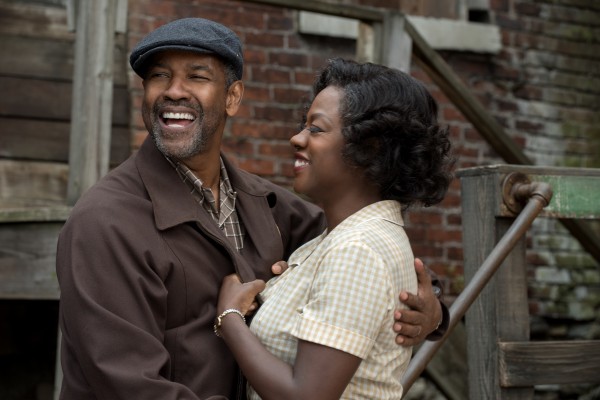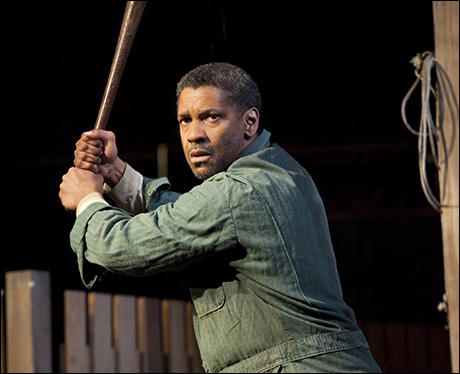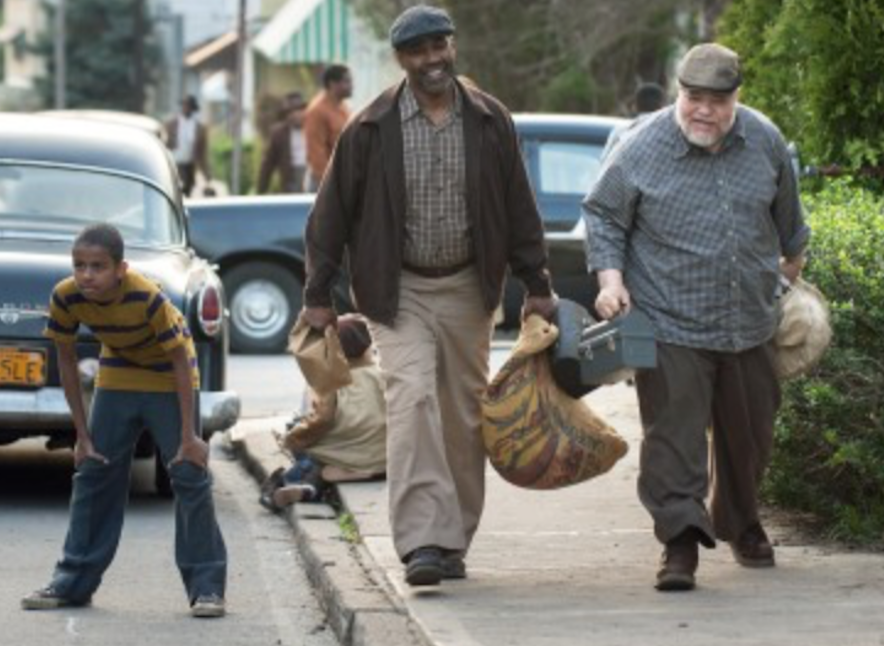 I’ve never considered Denzel Washington an actor so much as a star. Stars are performers who project their personality and beauty with such charisma that they render even the most mediocre projects appealing. Actors are performers who disappear into roles so completely that they capture essences that were not even written. Some stars are actors – surprisingly, in her later career, Julia Roberts has turned out to be both – but rarely do the two categories overlap. Washington may be one of the most powerful artists working today, but he’s only got one trick, and that trick is dominance. He plays such hero-martyr-mavericks as Malcolm X (an amazing Malcom X, to be fair) and boxer Rubin “Hurricane” Carter. Even when he’s bad, he’s the baddest bad guy, as in “Training Day,” when he portrays a mega-dirty cop, or in “Flight,” when he takes on the part of an alcoholic pilot who miraculously steers a mechanically faulty passenger plane to safety while blotto on cocaine, screwdrivers, and illicit sex. What we never see him play is a schlub, a man who misses more marks than he makes.
I’ve never considered Denzel Washington an actor so much as a star. Stars are performers who project their personality and beauty with such charisma that they render even the most mediocre projects appealing. Actors are performers who disappear into roles so completely that they capture essences that were not even written. Some stars are actors – surprisingly, in her later career, Julia Roberts has turned out to be both – but rarely do the two categories overlap. Washington may be one of the most powerful artists working today, but he’s only got one trick, and that trick is dominance. He plays such hero-martyr-mavericks as Malcolm X (an amazing Malcom X, to be fair) and boxer Rubin “Hurricane” Carter. Even when he’s bad, he’s the baddest bad guy, as in “Training Day,” when he portrays a mega-dirty cop, or in “Flight,” when he takes on the part of an alcoholic pilot who miraculously steers a mechanically faulty passenger plane to safety while blotto on cocaine, screwdrivers, and illicit sex. What we never see him play is a schlub, a man who misses more marks than he makes.
So it’s a welcome surprise to see Washington turn that “large and in charge” quality on its head in “Fences,” an adaptation of the 1985 August Wilson play about a working-class family in 1950s Pittsburgh. Perhaps he’s willing to depict a weak, complicated man here because he’s deeply invested in preserving the integrity of this Pulitzer Prize winner. Perhaps it’s because of his level of familiarity with the material, as both he and costar Viola Davis won Tony Awards for the same roles in a 2010 Broadway revival. Perhaps it’s because he’s also behind the lens; he’s still in control no matter how much underbelly he reveals. My guess is D, all of the above, but whatever the reason, the nuanced disappointment he and his cast channel in this film tells one of the richest stories of 2016 cinema.
 Washington is Troy, a fifty-three-year-old garbage collector who missed out on a career as a major league baseball star due to youthful indiscretions and racism. We meet him when he and coworker Bono (Stephen Henderson) are ending their work week with a fifth of booze and tall tales galore, and their on-our-own-time, down-home shorthand is pure, elbow-jostling pleasure. But this is a play of poetically heightened realism, so soon enough Troy – who’s never one to shy from conflict – starts to roll heads. These include Lyons (Russell Hornsby), his thirtysomething jazz-musician son from a first marriage who comes around on pay day for a hand-out; current wife, Rose (Viola Davis), who stoically navigates his erratic moods by only picking the fights worth winning; and teenaged son Cory (Jovan Adepo), whose high school football career is thwarted by Troy’s unfortunate “if I can’t do it, no one can” style of parenting. Also on the docket, though more the object of Troy’s guilt than fury, is the trash man’s younger brother Gabriel (Mykelti Williamson), who returned from the war with brain damage and a pension that finances Troy’s house. (Gabriel lives in a rooming house nearby.)
Washington is Troy, a fifty-three-year-old garbage collector who missed out on a career as a major league baseball star due to youthful indiscretions and racism. We meet him when he and coworker Bono (Stephen Henderson) are ending their work week with a fifth of booze and tall tales galore, and their on-our-own-time, down-home shorthand is pure, elbow-jostling pleasure. But this is a play of poetically heightened realism, so soon enough Troy – who’s never one to shy from conflict – starts to roll heads. These include Lyons (Russell Hornsby), his thirtysomething jazz-musician son from a first marriage who comes around on pay day for a hand-out; current wife, Rose (Viola Davis), who stoically navigates his erratic moods by only picking the fights worth winning; and teenaged son Cory (Jovan Adepo), whose high school football career is thwarted by Troy’s unfortunate “if I can’t do it, no one can” style of parenting. Also on the docket, though more the object of Troy’s guilt than fury, is the trash man’s younger brother Gabriel (Mykelti Williamson), who returned from the war with brain damage and a pension that finances Troy’s house. (Gabriel lives in a rooming house nearby.)
As modest as his life station may be, Troy still insists on being regarded as the master of his domain. Outside of the house he cannot even score a promotion to garbage truck driver (that gig is reserved for whites), but at home he likes to remind everyone, “I’m the boss here,” and never fails to use whatever slim advantage he has. He may love his family, but his need to dominate comes first, and we see how this impulse may stem from greater social injustices but is no way excused by them. The pain he inflicts is at least equal to the pain he experiences in the world, and the physical malady he eventually suffers is therefore no small irony.
Large as it may be, however, the irony is not heavy-handed, and that’s also the chief achievement of this film. So often adaptations suffer from Death by Wordiness, for film is such a uniquely visual medium that it requires far less dialogue than theater or novels. Happily, this script, co-adapted by the great Tony Kushner, offers just enough dialogue – a percussive symphony of sweet nothings and straight talk and the dozens, punctuated by the sour revelations issued only when people are pushed against the wall of their own jive. When Troy breaks others, he breaks, too, and his slumped shoulders tell multitudes.
This is Washington’s third directorial effort, and by now he evinces more of the strengths than the deficits of the actor-turned-helmer.  Though he can’t help but linger too long in the close-ups that are actors’ rather than audience’s dreams, he and his team of production designer David Gropman and cinematographer Charlotte Bruus Christensen offer cozily lived-in sets and appealingly retro set-up shots. Better yet, Washington draws on his considerable thespian skills to coax brilliance from his cast, especially the beautifully layered Davis, whose single sigh contains multitudes, too. As with this season’s “Loving,” about the Virginia couple who inspired the landmark Supreme Court ruling on interracial marriage, “Fences” is a portrait of ordinary people fumbling toward compassion and courage under the shadow of extraordinary injustice, disenfranchisement, and self-doubt. These are the kind of heroes we need most right now, and I’m grateful Denzel dimmed his star just enough to share them.
Though he can’t help but linger too long in the close-ups that are actors’ rather than audience’s dreams, he and his team of production designer David Gropman and cinematographer Charlotte Bruus Christensen offer cozily lived-in sets and appealingly retro set-up shots. Better yet, Washington draws on his considerable thespian skills to coax brilliance from his cast, especially the beautifully layered Davis, whose single sigh contains multitudes, too. As with this season’s “Loving,” about the Virginia couple who inspired the landmark Supreme Court ruling on interracial marriage, “Fences” is a portrait of ordinary people fumbling toward compassion and courage under the shadow of extraordinary injustice, disenfranchisement, and self-doubt. These are the kind of heroes we need most right now, and I’m grateful Denzel dimmed his star just enough to share them.
This originally was published at Signature.
